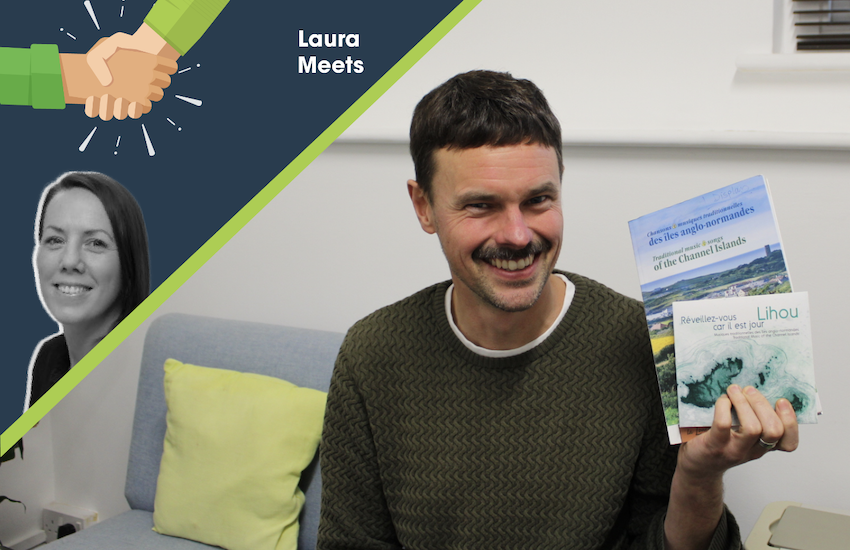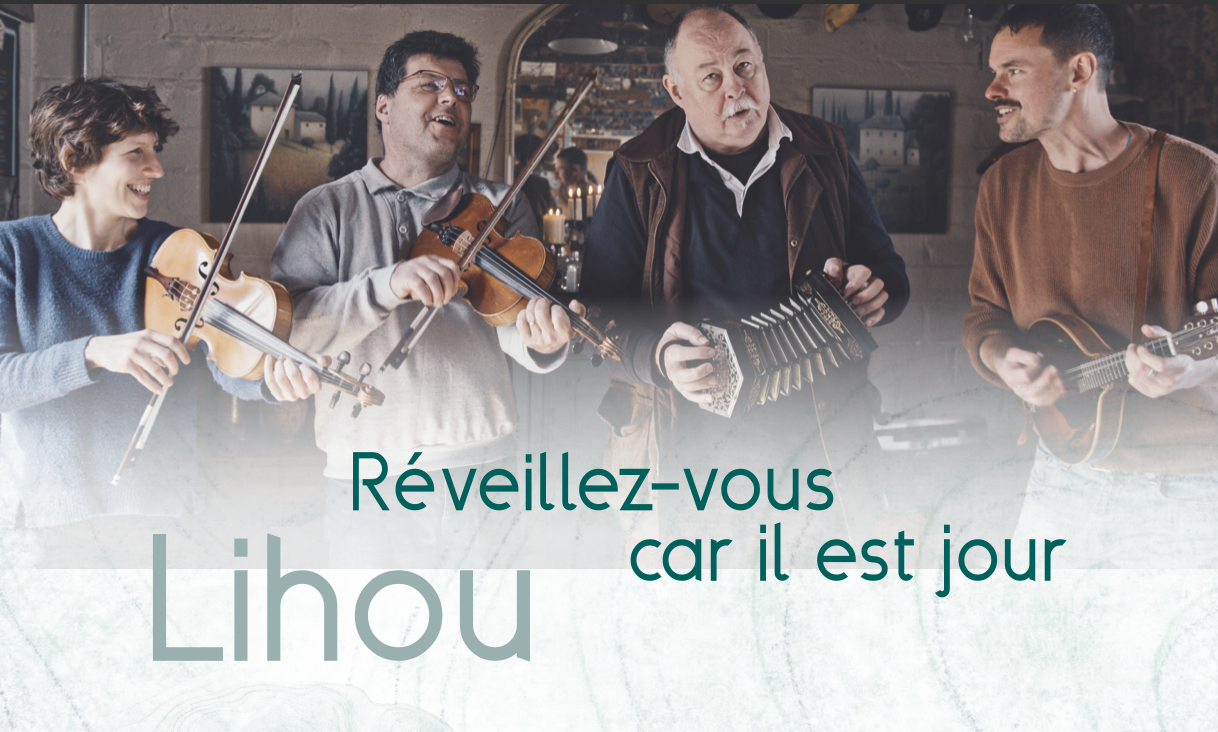


With a passion for traditional music, James Dumbleton is working with others to try and preserve the cultural sounds of the Channel Islands before they are lost for good.
As he describes to me what traditional music is and why it is so important culturally, it's clear that the lessons we can learn about ourselves, our ancestors and our communities through those songs is in danger of slipping through our fingers.
From England, James moved to Guernsey more than a decade ago and brought his love of folk music with him. Coupled with his enthusiastic interest in learning about different cultures he embraced Guernesiais - but as he explained, Guernsey's culture is about much more than just its traditional language.
Traditional music plays a huge part in it.
"I'd say the majority of these songs, certainly the ones that we sing, a couple of them would be recognisable to some people, but very few people, and the majority would be totally unrecognisable.
"It's not something that persisted through the years. People haven't passed down these songs to the next generation so it is like a lost tradition."

Pictured: Working with other traditional music enthusiasts, James Dumbleton released an album recently showcasing Channel Islands culture.
While the Occupation - and with it the evacuation and deportation of many thousands of people - was the largest event in the islands' recent history, Mr Dumbleton said we can't blame that era for the loss of our traditional musical sounds.
Recordings were being made of local people singing traditional songs up until the 1950s with knowledge of songs being sung in pubs in Sark at least in the 1970s.
Sark had been one of the first places to recognise the importance of preserving this cultural sound, when the then Dame of Sark invited the BBC over to make recordings in the 1920s.
Now, 100 years on, those traditional Channel Islands sounds are increasingly likely to be lost.
James and others have worked hard to prevent this happening though.
A book and CD collection of traditional songs from the Normandy region of France included the Channel Islands, while more recently a collaborative effort called 'Lihou' was released online and in physical CD form with new recordings of traditional songs.
James said he had wanted to create something - which could be accessed for free - to help preserve these sounds.
"To me, it sounds quite akin to the French stuff but also there's a lot of English elements in there as well and a lot of it is very unique. It's very identifiable as say, maybe French or English, but the actual material itself and the tunes are often totally unique to the Channel Islands.
"There're a few songs that were collected....anywhere else in the world with traditional songs, they spread traditions spread like wild fire everywhere and you'll get the same song sung in lots of different traditions. You can just tell that it comes from a different place, although the song is related to the same source as it were. And that's the case with a lot of the songs from that were collected in the Channel Islands. They have their sources in one place and are sung in lots of different places.
"But the way it was collected and the way it was sung here is completely different to the way it's sung somewhere else. And that in itself is unique and it's even different to the way it would be sung on the Norman coast."
Pictured: James Dumbleton.
James' passion for traditional music may be unlikely to some. He says it's down to the innate human nature of rebelliousness while also wanting to belong.
"I think it's important because I think a lot of people these days feel quite displaced and I think having a sense of cultural identity can help you feel like you belong somewhere. And I also feel like there's a lot to be gained by being individual and not homogenous as human beings. We want to be like that. I think that's why we're rebellious, you know, because we rebel against the monoculture and we try to do something that's more interesting and a great way of doing that is to look at traditions."
By looking at local traditions, James and his fellow Lihou bandmates hope they may be able to evoke memories for some people through their music.
"There are certain memories that might exist in people's minds about sound...but these people are getting old. It's a bit like collecting the language, if you don't do it you miss the boat very quickly."
Cultural identity is fluid and will change over time, and James said that is how traditional music can reflect the culture.
Rather than being written down, the scores are performed and will vary from musician to musician, and they'll evolve over the years.
"I've seen it happen in Jersey," he explained. "I know that one of the things they've realised is that by embracing the other cultures that are there, it helps define their own. So, for example, within the language, they've held festivals of cultural sharing it. You'll get the Portuguese community, with traditional songs and presenting the traditional culture of Portugal alongside their Polish community, alongside their Latvian community, and then as part of that, they have their Jersey community.
"And what they find is that the meeting point there really helps solidify that cultural identity, but also encourage people to be proud of what they do have."
Comments
Comments on this story express the views of the commentator only, not Bailiwick Publishing. We are unable to guarantee the accuracy of any of those comments.